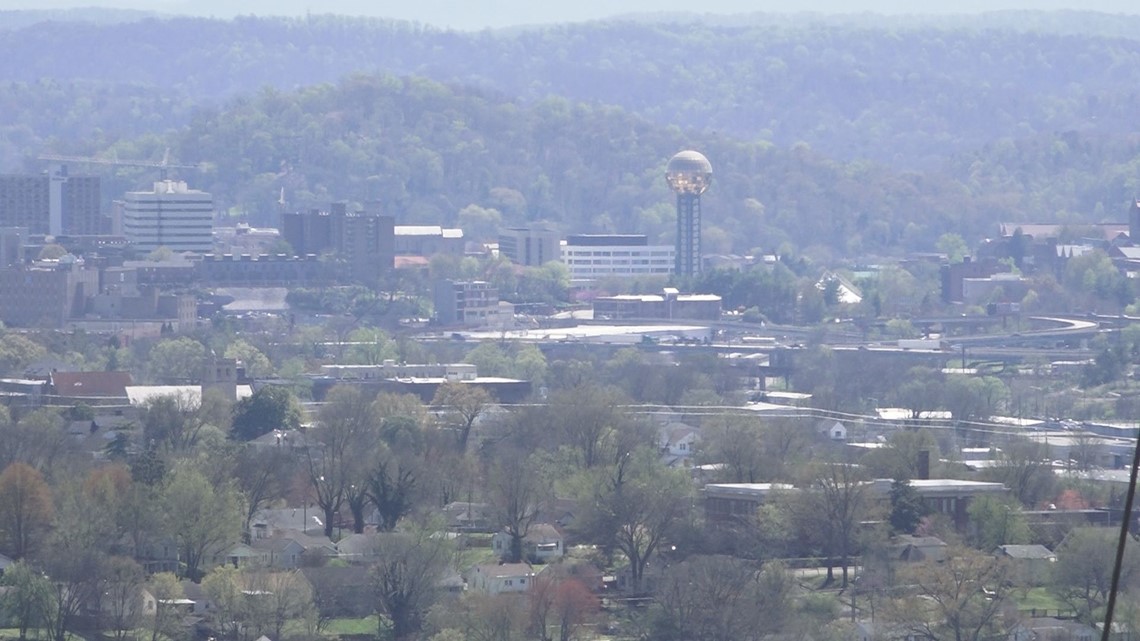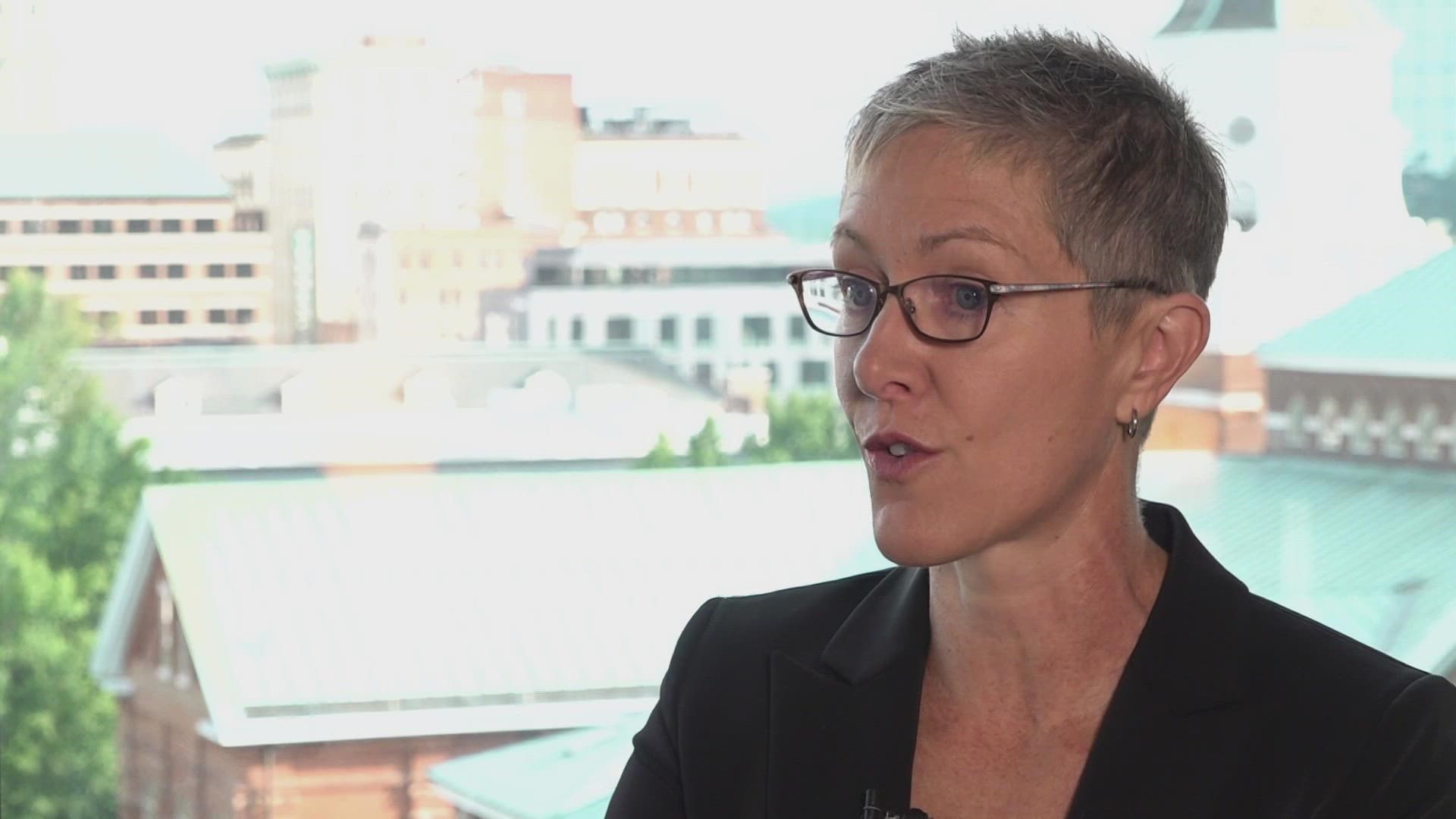KNOXVILLE, Tenn. — As Knoxville has grown, so Stephanie Welch has grown.
Over the last nearly 30 years, the city's gained more people, more amenities, a real, live downtown and a spiffier, maybe even cool image.
Welch has watched the city progress, and in many ways, she's helped at least some of that happen. And now she's leaving.
After 27 years as a Knoxvillian, the deputy to Mayor Indya Kincannon has decided it's time to move back to her native New England to be closer to family. Sept. 2 will be her last day on the job.
She leaves with great affection for the city and a touch of longing.
"When I was 23 and I moved here, a thousand miles was exactly what I needed. I needed some space to grow and to learn and to become an adult. And I've had such a wonderful experience. Knoxville has given me so much over the years. It's very hard to leave.
"But that thousand miles has gotten to be just too far for me to be away from a family I love, and I need to be closer to them. And in some ways, I think particularly my parents need me to be closer as well."
She's uniquely positioned in the community, having worked for the county, the city, in education, and by serving as a city councilmember. Her parents raised her, she said, to think about serving the greater good.
Welch came here in the mid-1990s to attend grad school at the University of Tennessee. She ended up staying. She started out with the Knox County Health Department as a public health nutritionist and rose through the department ranks.
Simultaneously, she began more than 20 years of service in the U.S. Army Reserve, reaching the rank of major.
Her time in public health led to her interest here in the Great Schools Partnership, a non-profit think tank-type organization that aimed to help public schools improve while also helping the communities around them.
"I started to get real interested in this idea of community schools," she told WBIR on Wednesday. "There was a movement in Knoxville at the time to establish schools as hubs for improving communities and improving the lives of children and their parents."
She rose to become president of Great Schools.
Welch also took an interest in public office. She was elected councilwoman in 2017 representing South Knoxville. She held that seat until early 2020 when she went to work for Kincannon as one of the new mayor's key assistants.
She's focused during her time with the city on economic development, including entrepreneur Randy Boyd's push to build a downtown stadium at which his Tennessee Smokies baseball club can play.
Welch has been the city's point person on the downtown stadium project, which is being located in a long-overlooked area east of the Old City once known as "The Bottom."
In the interview below, Welch talks about a range of topics, including the status of the stadium, the importance of the Urban Wilderness, watching Knoxville grow and flourish and her assessment of the challenges the city faces in the future.

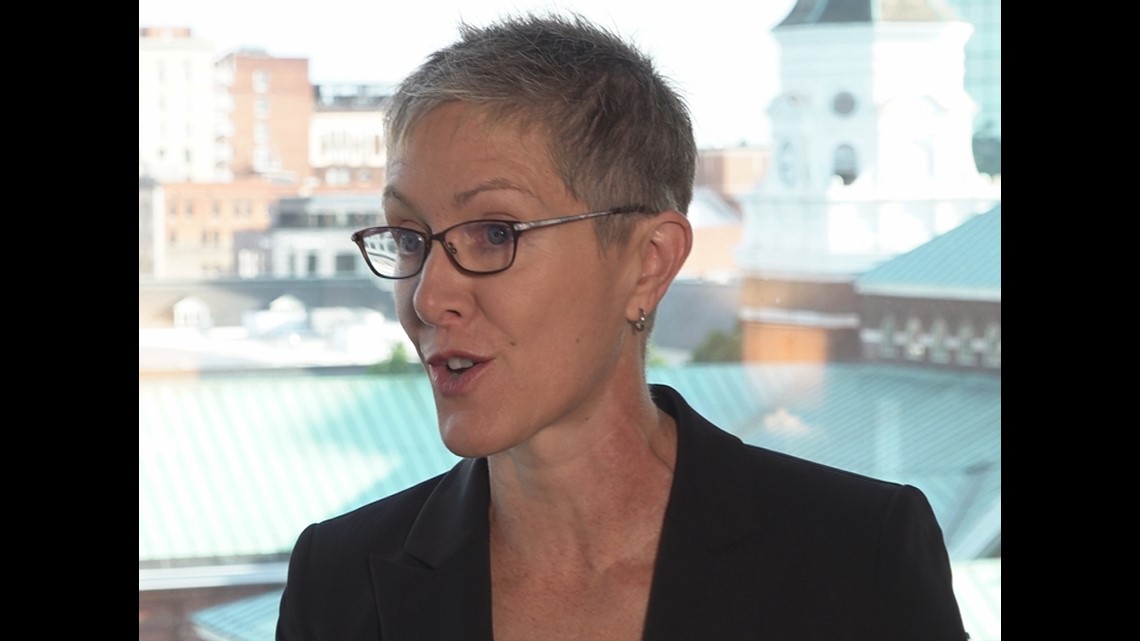
DOWNTOWN STADIUM PROJECT
On Tuesday morning, Smokies CEO and Boyd representative Doug Kirchhofer briefed the city-county sports authority on the proposed stadium, which once had an estimated price tag of more than $65 million. The sports authority has been created to oversee project financing and construction.
Boyd, a businessman and president of the University of Tennessee System, bought the acreage for the site along Jackson Avenue, and his team will pay rent to help cover construction and financing. He's also leading a private development group that envisions commercial and residential development around the stadium.
Kirchhofer said Tuesday with construction costs rising sharply -- a trend that's become more pronounced throughout this year -- backers have decided to scale back on some of what the stadium would hold. The ultimate pricetag likely still will be higher than previously estimated.
The function, however, would remain the same, and the goal remains to open in 2025. Besides baseball, the venue could host soccer and outdoor concerts among other events.
Welch says simply "The stadium will be built." That's in large part because of Boyd's dedication to the project as well as the partnerships that exist among the city, county, the community and Boyd himself.
That's why the stadium will get built, she said.
"Without exception, what I hear is, You have no idea how fortunate you are to have such a great private partner who is so dedicated to the project and willing to put up his own resources and to make sure that it happens," she said.
It's going to be a community asset, not just a place for a team to play Double A baseball, she said. It's meant to be an amenity that appeals to multiple generations for years to come, she said.
That includes younger people, who need reasons to stay in Knoxville rather than move on to what they may see as a bigger or shinier or more attractive place to live.
"So for multiple reasons, the investment that is being carefully planned by the city, the county, the sports authority, is an investment in our future. And we're being very good stewards of taxpayer dollars as we're thinking about that," Welch said.

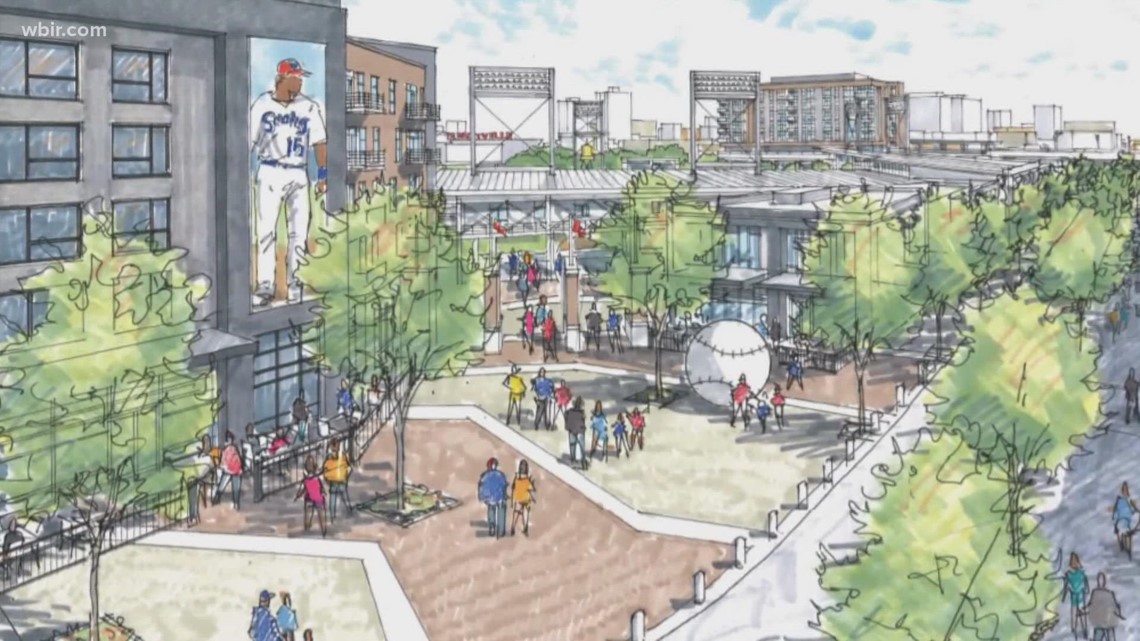
MANAGING KNOXVILLE'S GROWTH
What does Welch see as a big challenge for the city going forward?
She thinks the city is managing growth well so far, investing public dollars where they're needed to provide services and amenities that made the place attractive. It's also worked to preserve assets such as Market Square and other historic spaces.
But all of that is an ongoing responsibility that can't be taken for granted. It requires constant care, she said.
Change -- growth, in other words -- can be scary, she said.
"We need to take on that change in a way that benefits our community and not run away from it. And I think Knoxville is up to that. And I think people in our community are ready for the kind of positive change that is happening now and is coming in the future."
INCENTIVES
There's a perception among some that financial incentives such as PILOTs, or payment in lieu of taxes plans, and tax-increment financing are giveaways that are easy for a developer to get in Knoxville. They're meant as a carrot to encourage investment.
Numerous city leaders have credited such incentives with helping to bring downtown Knoxville back to life starting a little more than 20 years ago.
PILOTs and TIFs can work, Welch said. They represent opportunities where the public and the private sector both benefit.
They're not given out freely, she said. The city has turned some projects down for special financial assistance.
"We also, I think, as a city have really helped evolve our process of partnering through using PILOTs and TIFs by identifying city priorities, by going through a very thorough review process that looks at whether or not that financial gap needs to be filled with some type of a PILOT or a TIF. So it's a pretty stringent process that's based on city priorities. And it's resulted in some great investment in our community that as long as we're strategic with how we use those tools, I think that investment will continue to benefit Knoxville."

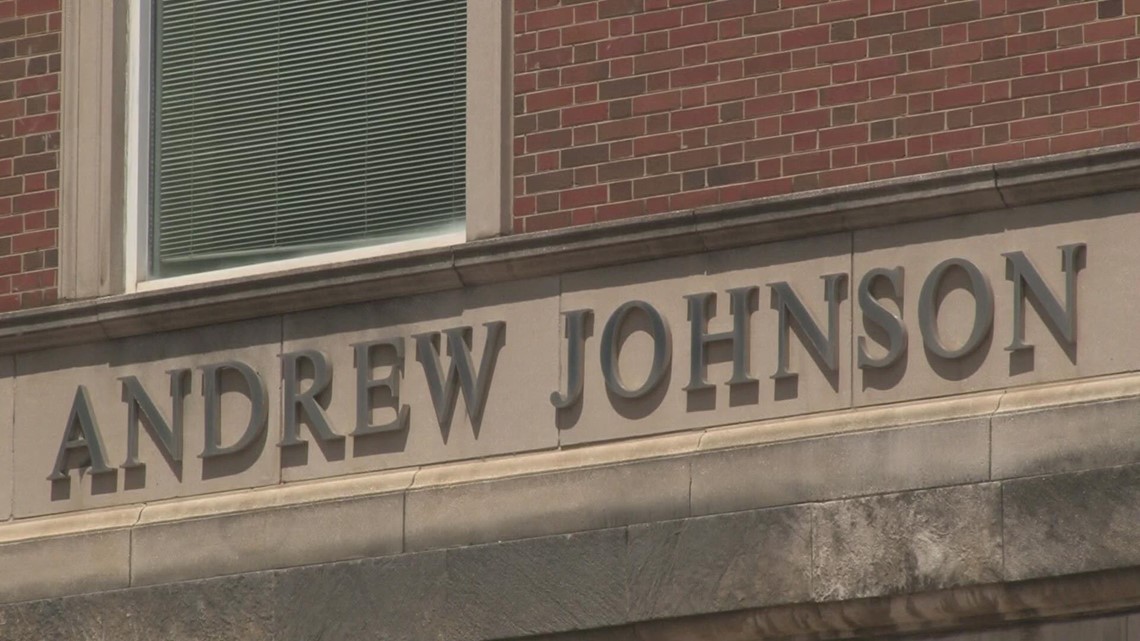
MAIN STREET, EAST TENNESSEE
If you think Gay Street is lively now, watch what happens in a few years. Several projects -- hotels and residential -- are being pitched. Gay Street also offers a block of land -- where the decrepit Pryor Brown parking garage sits empty -- that's ripe for a full range of uses.
Welch can remember when nothing happened on Gay Street when darkness fell. She can remember playing fetch with her dog on the bridge without having to worry about traffic.
Today is much different.
Gay Street has turned into, arguably, East Tennessee's Main Street, she said. People come to stroll, to people watch, to get their picture taken under the giant, bright Tennessee Theatre sign.
And the city would be smart, as it has so far, to preserve the historic flavor of the thoroughfare, she said.
"Changing the character of Gay Street is probably not something that I would imagine the city would want. Let's keep that character because that's part of what makes it such an appealing place. That doesn't mean that new development couldn't happen along empty lots right now on Gay Street. But I think the focus of this administration and past administrations -- that's been supported by the community and by City Council -- is let's maintain that character by ensuring private development is in keeping with the existing character of that beautiful place we call Gay Street."

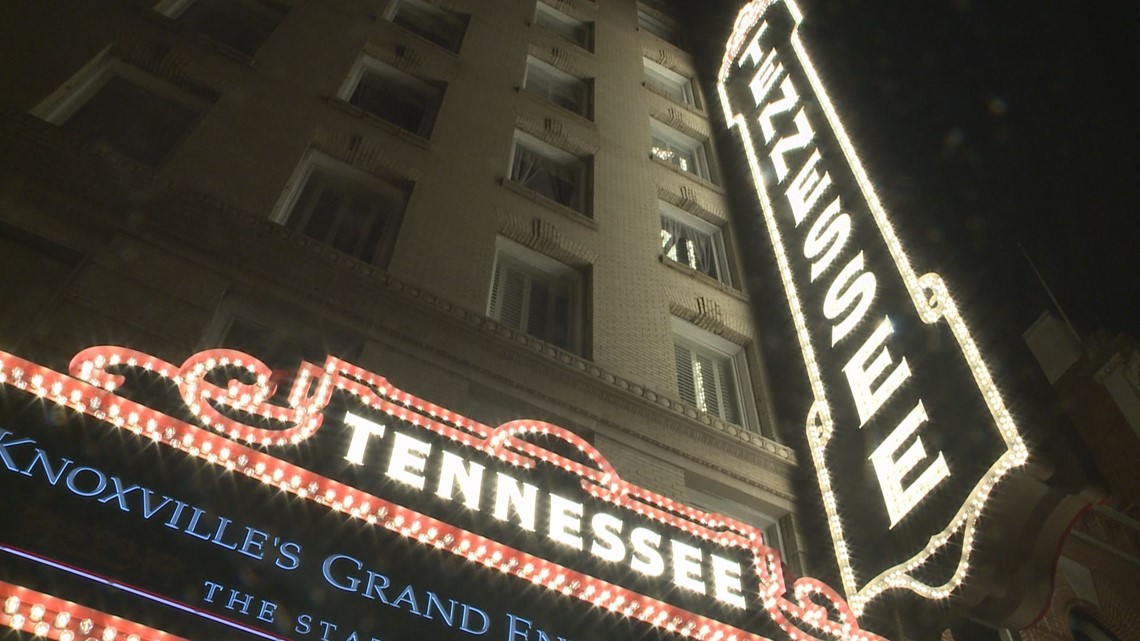
THE URBAN WILDERNESS
If you've ever lived in South Knoxville you know not much happened there for a long time. Some liked it that way; others wondered if the place was comatose.
A lot goes on these days in the 37920 ZIP code area. One draw is the Urban Wilderness.
Knoxville is lucky in a way that a good chunk of South Knoxville lay fallow for so many years, Welch said. It meant, for example, that city leaders could set aside and preserve hundreds of acres that have evolved into the Urban Wilderness, the rough boundaries of which include Mead's Quarry and Forks of the River.
If you're lucky enough to live in parts of South Knoxville, you've got a trail system that's just a walk or a bike ride away.
"But it's not just benefiting me and my neighbors, who have been there for many years. There are people coming from all over the country. Every weekend, I see cars from Washington state, from Vermont, from Texas, from California, and from all of the states around Knoxville -- people driving in to enjoy this gem," Welch said.
And it is a gem.

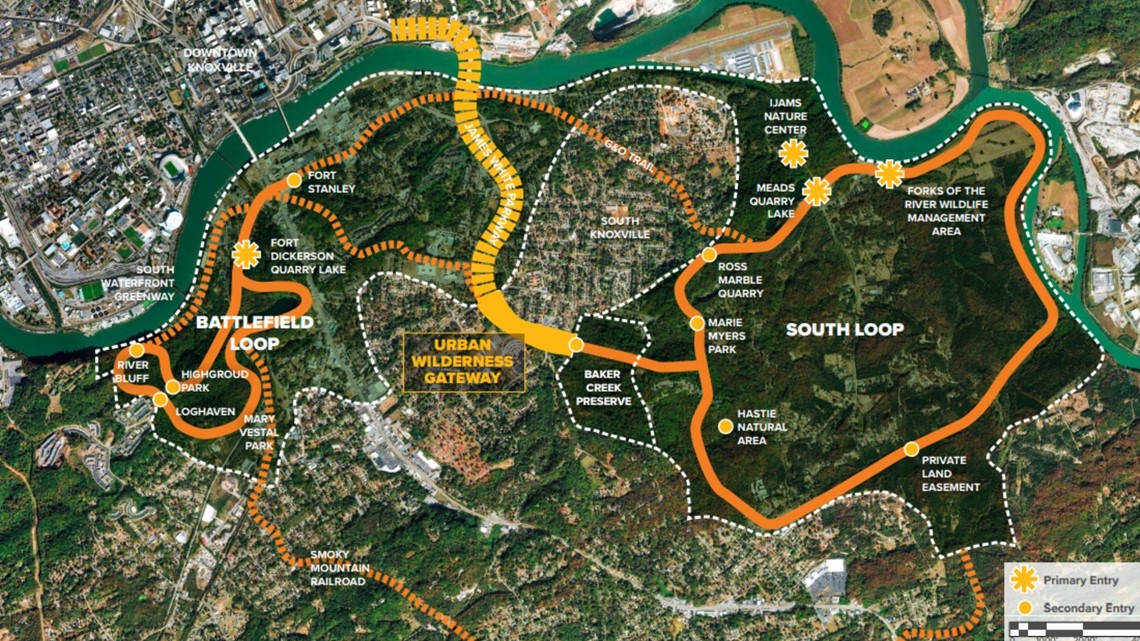
A SPECIAL PLACE
Welch plans to take it easy for a bit when she moves back to New England.
She's leaving a place of which she's grown very fond.
"What's great today is that when people come to visit, they immediately see the vibrancy of our downtown, but not just downtown, (also) the network of neighborhoods throughout Knoxville that are really strong. The parks and outdoor recreation opportunities, how close we are to other really fantastic amenities in the Southeast.
"So I love to talk about how all of the assets that Knoxville has that makes it a great place for people who live here. And so I think that's what makes Knoxville such a wonderful community is that we have developed and strengthened our community in a way that benefits the people who live here.
"And so I think that's what makes Knoxville such a wonderful community is that we have developed and strengthened our community in a way that benefits the people who live here. And by doing that, when people come to visit, they also see how wonderful it is. But we've not necessarily done it for them."

